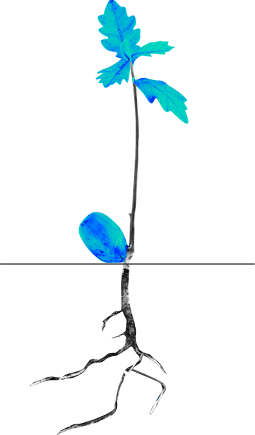
There are many different ways to feel a connection with nature, but strict tribal definitions stop most of us from telling ourselves that nature matters to us. If we want more people to stand up and fight for nature, we need to broaden the definition of love.
You can spot a real nature lover because
- They know the Latin name of plants
- They list wildlife photography as a hobby
- They can identify more than five little brown birds
- They support campaigns to save the bees, elephants, pandas
- They go on safaris/walking holidays/retreats
- They criticize the beautiful aesthetics of the latest nature documentary
- They name Chris Packham amongst their celebrity dinner guests
- They tell you why they’re vegan 😉
Of course, we’re being deliberately provocative but it’s to crudely illustrate that the stories told about who loves nature and what love looks like, are seriously powerful.
It’s a serious topic because our influence on our biosphere is now so absolute, that what we choose to do over the next couple of decades will determine the future of all life on Earth, not just ours. And at the moment, nowhere nearly enough of us include nature in the story we tell ourselves of who we are and our place in the world. If we did, we’d be pushing to do things very differently.
So what’s the problem? Currently, and especially in the West, we’ve set high thresholds to earn the right to call ourselves a nature lover. The rituals and symbols that we’ve created, are sending strong signals about who belongs to a ‘nature loving’ tribe and who doesn’t. Nature lovers, often with the privilege of time, money and knowledge, have accidentally created barriers that prevent a majority of people telling themselves that they care about nature and that their relationship with nature is good enough.
To win more support for nature, we need to start tearing down these barriers.
We need to break free of controlling and limiting definitions of love for nature. And understand that, like love between people, there are infinite variations and that all are valid if they don’t cause harm to others.
Widening our definition of love for nature means including; our investigations that have provided medical breakthroughs, inspiration for innovation, sustainable food production, renewable energy and much more. It’s also about legitimising and celebrating those millions of tiny moments of magic in nature from when you warm in the sun while standing outside the office or the smile from seeing pigeons in a sex squabble on a telephone wire.
Changing the stories we tell ourselves about our connection to life on the planet must start with making room for different types of love.
Share:
Grow Your Good Idea Faster
New ideas are precious. Win support by learning how to create and tell a stronger story – sign up to join for free.

Related posts
Watch: storytelling can win the pitch
You can now view our latest webinar and read the top tips we unearthed when telling your story in a pitch.
Can we still trust the American Dream?
“I’d like to begin with a story. It’s an astonishingly simple story. In fact, it only has six words: America is...
Fight, flight, freeze, fawn: Injecting courage into your story
Fight, flight, freeze and fawn – we all have these instincts. These physiological reactions in our nervous system...
Learn from the strongest stories about change
Sign up here to receive our monthly newsletter that explores great storytelling about brilliant ideas. Don’t worry you can unsubscribe at any time.
We’re working hard to walk the talk.
We’re proud to be have been awarded The Blueprint and B Corp status in recognition of our work towards creating a better world.

